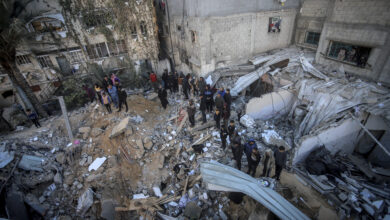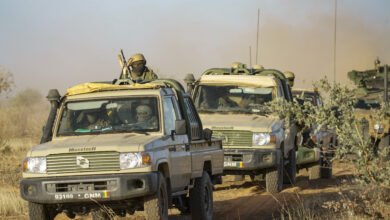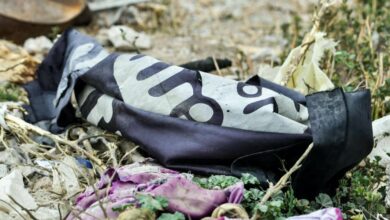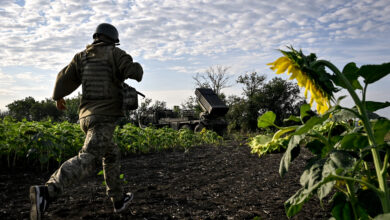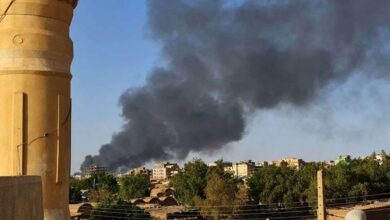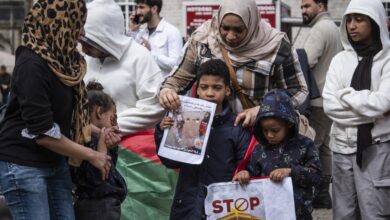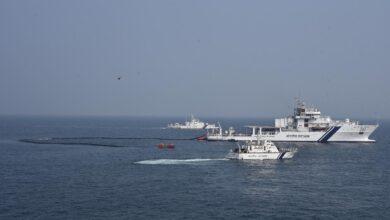ISIS claims deadly attack on Afghanistan interior ministry headquarters in Kabul
Militants launched a gun and bomb attack on the interior ministry in Kabul on Wednesday, killing a policeman in the latest chilling demonstration of their ability to strike at the heart of the Afghan capital.
Five people were injured in the attack, which took place during the holy month of Ramadan and was claimed by Islamic State.
The Taliban are also stepping up their assaults on the capital, making the heavily fortified city the deadliest place in the country for civilians.
Special forces rushed to the scene after the attackers detonated what police said was a car bomb at the first checkpoint leading to the ministry, then tried to battle their way inside.
“The fighting is over, the attackers have all been killed by security forces between the first and second security perimeter,” said Kabul police chief Daud Amin.
A security source told AFP a clearing operation was continuing.
“The attackers used two vehicles to reach near interior ministry compound. There were eight attackers involved, one detonated his explosives, seven others were killed,” interior ministry spokesperson Najib Danish told reporters.
He said the attackers used vehicles disguised as those used by foreign military forces, the New York Times reported.
Danish said one police officer had been killed and five civilians wounded.
Police officer Mujibullah Nabizada was injured in the first blast.
“I dragged myself to the road and a car picked up and brought me to the hospital,” he told AFP from his hospital bed, where he was being treated for broken bones.
Seweeta Saberi, 17, was also wounded in the blast and taken to hospital.
“Everyone is sitting in their loved ones’ blood these days,” her brother Sameer told AFP. “We request you [government leaders], for God’s sake, if you can’t manage this country please resign.”
A security source told AFP there had been multiple blasts but could not confirm how many.
“I was in my office when I heard a blast followed by gunfire. We were told to stay inside our offices as the compound was attacked,” said one ministry employee.
ISIS, which is trying to make inroads in Afghanistan, claimed responsibility for the attack via its Amaq propaganda service.
U.S. Army General John Nicholson, Resolute Support Mission commander, said in a press briefing that he believed either the Taliban or Haqqani network, not ISIS, was behind the attack.
“We believe it was a Taliban/Haqqani attack,” he said, adding that it was similar to others carried out by those groups. “At this time we do not believe it was an ISIS attack.”
Nicholson said the assailants had captured the vehicle.
Police also said they had found a car stuffed with explosives and guns at Kabul’s international airport near the interior ministry on Wednesday.
Kabul targeted
Both ISIS and the Taliban have stepped up their attacks on Kabul. The city accounted for 16 percent of all civilian casualties last year, when 1,831 civilians were killed or wounded nationwide, according to the United Nations.
The myriad attacks in the last 12 months included two of the deadliest in the city since the U.S. invasion: a truck bomb on May 31, 2017 that killed more than 150 people, and an ambulance bomb in January 27 this year which killed more than 100.
The U.N. has warned that 2018 could be even deadlier.
Many fearful residents have restricted their movements as a result, afraid to linger in bazaars or to become trapped in traffic during rush hour, a prime time for attacks.
Last week the Taliban called on Kabul residents to stay away from military and intelligence centers in the capital, saying they planned more assaults as part of their annual spring offensive.
“To avoid civilian casualties and only cause damage to enemy military, we are asking Kabul residents to keep away,” said a statement published online.
The Taliban did not define what was meant by “military and intelligence centers.”
Such targets are difficult to avoid given that the city is the heart of the country’s intelligence, government and military operations and plagued by traffic jams due to ubiquitous checkpoints and barriers.
A war over water: Fall of Farah exposes a new proxy front in Afghanistan’s conflict
With reporting from AFP



